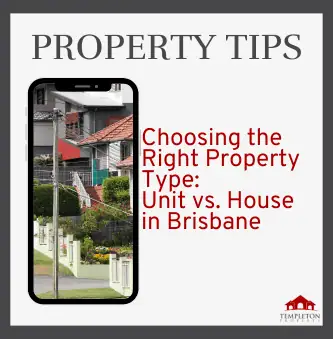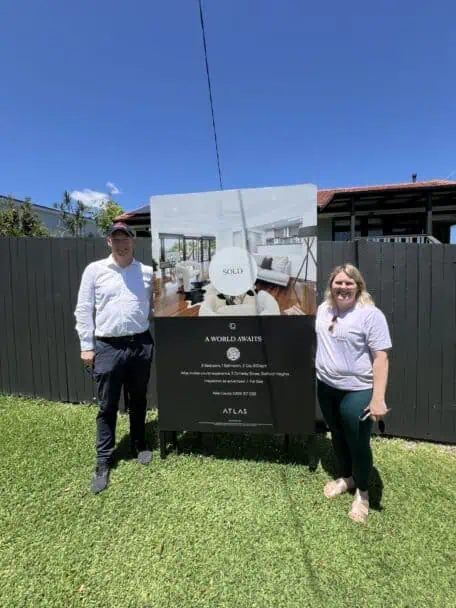Brisbane’s residential property market offers a wide range of housing options, catering to various lifestyles and preferences. As of recent data, the city maintains a relatively balanced mix of houses and units, with standalone houses still holding the majority.
Approximately 70% of residential properties in Brisbane are detached houses, while the remaining 30% consist of units, apartments, and townhouses. This distribution speaks to Brisbane’s knack for preserving its suburban charm while embracing urban living solutions.
It’s important to note that this housing mix isn’t uniform across the city. Inner-city suburbs like South Brisbane, Fortitude Valley, and West End have seen a significant rise in apartment living. These areas are at the forefront of urban densification efforts, offering Brisbane residents a more compact lifestyle with easy access to city amenities.
On the other hand, Brisbane’s outer suburbs continue to be dominated by standalone houses, appealing to those seeking more space and a traditional suburban lifestyle.
The gradual increase in apartment and unit living reflects Brisbane’s evolution as a growing metropolis. This shift responds to changing demographics, affordability concerns, and a desire for low-maintenance living options close to urban centres.
As Brisbane continues to develop, this balance between houses and higher-density living options will likely play an important role in shaping our city’s future urban landscape.
When it comes to purchasing property in Brisbane, one of the first and most important decisions you’ll need to make is choosing between a unit (or apartment) and a detached house. Both have their unique sets of advantages and limitations, which can significantly affect your lifestyle, financial situation, and future returns on investment. In this blog post, we’ll look into and unpack the key factors to consider when making this important decision.
Key takeaways
- Apartment vs. house investment: Factors to consider:
- Investment goals: What do you want out of your purchase?
- Budget: What can you afford now and in the future?
- Location: Where would you like to live and grow?
- Property size: How much space do you need?
- Maintenance: How much will repairs and upkeep cost over time?
- Potential: What could your nest egg be worth in a few years’ time?
- Community and lifestyle: What does the bigger picture look like?
- Resale value: What could you sell for down the track?
- Case studies and examples
Investment goals
Your investment goals should be at the heart of your decision to make a house vs. apartment purchase decision. Investing in a house, for example, is generally considered a long-term prospect, whereas owning an apartment may represent a more affordable, short-term strategy.
While a house will typically generate more long-term capital growth than an apartment, a lower rental yield is likely – an important consideration for those looking to invest and stay.
Budget and affordability
It’s no secret that apartments are typically less expensive to buy and maintain than houses, making them a more affordable entry point – and, therefore, a better investment – for first-time buyers and investors.
One case study on two properties in Ashgrove clearly demonstrates the value gap between units and houses.
- Initial purchase price comparison:
- 1/15 Globe Street, Ashgrove – a renovated 3 bedroom, 1 bathroom unit with single garage sold on 03/06/2024 for $825,000.
- 101 Mareeba Road, Ashgrove – a renovated post-war 3 bedroom, 1 bathroom detached dwelling with a single garage sold on 27/06/2024 for $1,050,000.
Then, there are the ongoing maintenance and usage costs, such as body corporate fees. While houses generally incur higher maintenance costs and council rates, the Body Corporates presiding over units charges body corporate fees. Higher body corporate fees generally apply to properties with more amenities that demand significant maintenance and repairs.
When it comes to long-term expenses, you’ll also need to factor in ongoing costs, such as contents insurance premiums.
Location and lifestyle
In any real estate purchase, the old adage still rings true: location, location, location! For those who want the convenience of living in central areas of capital cities, apartment living is often the best option, as apartments are generally more centrally located than free-standing houses.
Living in the same area as key amenities such as schools, parks, shopping centres, and public transport links is also a major drawcard for any investment property, often leading to higher capital growth and high rental yield.
Lifestyle preferences should also factor into any purchase decision. Purchasing a unit often means embracing urban living, whereas investing in a house is generally more affordable in suburban areas.
At the same time, it’s also important to consider land value. Buying a house with more land is often considered a better investment as land appreciates, whereas units or apartments generally show slower growth.
Property size and layout
Block and property size are difficult—if not impossible—to change, so it’s important to get it right from the beginning, particularly for investors who have (or plan to have) families.
The size of your family will determine how much space you need, now and in the future. Families with children generally opt for standalone houses with more living and outdoor space, as will investors who plan to renovate and resell for a profit, as houses generally offer more opportunities to redesign for added value.
Typically, houses provide more outdoor space and options for extension than apartments. With a backyard, rather than a restrictive balcony or a rooftop entertaining space, comes the opportunity to invest in features such as a beautiful garden or swimming pool, as well as additional storage space.
Beyond the lifestyle impact, these are important considerations for investors who plan to sell for a profit.
Maintenance and management
Any building, whether meant as a home to live in or an investment property, will require upkeep — which has a financial cost and calls for time and energy.
Generally speaking, houses incur higher maintenance costs than apartments do, and owners must be prepared to pay. On the other hand, in apartments, not all costs are the responsibility of the individual apartment owners, with expenses associated with the complex as a whole falling instead to body corporate.
In any case, the age and condition of the building will be a significant factor in the ongoing maintenance cost, and home buyers should know what their budget allows for future repairs – in an apartment, but especially in a house.
For these reasons, many owners and investors delegate property management responsibility, including general maintenance requirements such as building and pest inspections, to a professional.
Future potential
If you’re looking toward the future of your investment, historical capital appreciation suggests that houses are a better choice as land value increases over time. Long-term, houses are also better for generating a higher rental income as apartments have lower rental yields.
Other factors that could increase capital growth over time include a rise in market demand, and development plans in the area, which can have the same effect.
You should also consider the potential for rezoning or development in the house itself. While you’ll always need to attain council approval before renovating houses, owning a standalone house with no body corporate gives you greater control over the building itself and, ultimately, over capital growth.
Community and lifestyle integration
Each type of property comes with its own lifestyle amenities; for example, some unit complexes provide shared gyms, pools and common areas, whereas a house typically offers more off-street parking options.
However, when it comes to apartment living, being in close proximity to others also comes with challenges.
Generally speaking, living in an apartment means abiding by rules that apply to the entire complex so that all the owners of individual apartments are kept happy — particularly in situations where there are common areas.
Resale value and marketability
If you want to capitalise on your investment and generate greater cash flow, understanding the resale value and marketability is essential. It’s pretty likely you’ll be able to find a large amount of data available on the historical resale performance of any unit or house you’re considering, but you’ll also want to consider the features buyers are looking for in houses and apartments for marketability; for instance, does the house have strong curb appeal and make a good impression?
Legal and regulatory considerations
Zoning laws, development controls, and planning permissions become important considerations for buyers planning to rezone, extend, or modify a house or apartment.
Tenancy laws also apply to apartments and houses, so it pays to factor these in when making a purchase.
We’re experienced in both house and apartment purchases
At Templeton Property, we are proud to have facilitated many successful house and apartment purchases in Brisbane – from family homes to investments to interstate relocations.
Having purchased her first property in Brisbane through us, our client Georgina was impressed by our standard of service and ability to deliver results.
“Sam made the experience seamless and easy with his superior knowledge, professionalism and excellent communication throughout the whole process,” she said.
Whether you’re looking for a character home on the leafy streets of Ashgrove, a place right by the river in Auchenflower, or a house surrounded by the ultimate cafe culture of Paddington, our experienced buyer’s agents can make it happen for you.
In closing
From financial goals to lifestyle to potential resale value, there are many things to consider before making a new investment.
A wise investor will consider them all, but also remember that the final decision should be based on your personal preferences and financial goals above all else — and seeking professional financial advice is always a good decision.
Move forward with Templeton Property
Whether you’re a first-time investor or a seasoned buyer, making a final decision on an investment – and determining whether it’s the right decision – can be very stressful.
If you are considering purchasing a home or investment property in Brisbane or South East Queensland and would like the assistance of an experienced Brisbane Buyer’s Agent that can help you find the perfect property, that meets all your requirements for the right price, please don’t hesitate to contact us.
Feel free to contact us via email admin@templetonproperty.com.au or call 0418 159 993.
We look forward to hearing from you.
Sam Price, Buyer’s Agent and Director


